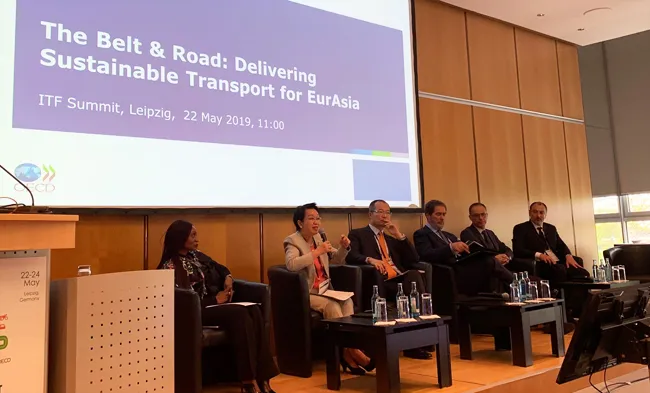The International Road Federation – India organised a one-day seminar in New Delhi, India on 14 January, 2017 as part of the Government of India’s annual Road Safety Week. The seminar was called ‘Pursuing 4Es for Road Safety – in the Mission Mode.’
The list of speakers included senior speakers from the Government of India, business and industry. Speakers from the Government of India included Sanjay Mitra, Secretary to the Government of India, Ministry of Road Transport and Highways (MORTH); RK Pandey, me
March 13, 2017
Read time: 2 mins
The International Road Federation – India organised a one-day seminar in New Delhi, India on 14 January, 2017 as part of the Government of India’s annual Road Safety Week. The seminar was called ‘Pursuing 4Es for Road Safety – in the Mission Mode.’
The list of speakers included senior speakers from the Government of India, business and industry. Speakers from the Government of India included Sanjay Mitra, Secretary to the Government of India, Ministry of Road Transport and Highways (MORTH); RK Pandey, member, National highway Authority of India; Dr Tanu Jain, assistant director General Health Services, Ministry of Health and Family Welfare; Dr Amit Gupta, head of the Jai Prakash Narain Apex Trauma Centre; and Sanjay Beniwal, special commissioner – operations, Delhi Police. Speakers from business included Dr Ajay Ranka, managing director,7552 Zydex Industries; and Akshay Kumar, manager campaigns, PVR; Pawan Kumar Singh, GM Smart Cities, 152 3M; Dr Mridul Bhasin, managing trustee, Muskaan Foundation.
The topics covered included engineering of safe roads, provision of emergency care, enforcement of traffic rules and regulations, the use of ITS for improving road safety, and the creation of an educational and awareness campaign for changing road user behaviour to improve road safety.
The speakers highlighted the importance of good road design as an important element in improving road safety and urged policy-makers to identify black spots and take action to remove them. The importance of, and the problems in providing accident victims with appropriate trauma care at the accident site were underlined in reducing the number of fatalities from traffic accidents. ITS was highlighted as being important in enforcement of traffic rules and regulations as well as in reducing drunk-driving by installing alcohol locks. Finally, speakers stressed the importance of catching “young” minds early on to instill a consciousness about and the importance of behaviours relevant to road safety. The seminar concluded with Kiran K Kapila, chairman,1201 IRF Geneva, emphasising the need for action.
The list of speakers included senior speakers from the Government of India, business and industry. Speakers from the Government of India included Sanjay Mitra, Secretary to the Government of India, Ministry of Road Transport and Highways (MORTH); RK Pandey, member, National highway Authority of India; Dr Tanu Jain, assistant director General Health Services, Ministry of Health and Family Welfare; Dr Amit Gupta, head of the Jai Prakash Narain Apex Trauma Centre; and Sanjay Beniwal, special commissioner – operations, Delhi Police. Speakers from business included Dr Ajay Ranka, managing director,
The topics covered included engineering of safe roads, provision of emergency care, enforcement of traffic rules and regulations, the use of ITS for improving road safety, and the creation of an educational and awareness campaign for changing road user behaviour to improve road safety.
The speakers highlighted the importance of good road design as an important element in improving road safety and urged policy-makers to identify black spots and take action to remove them. The importance of, and the problems in providing accident victims with appropriate trauma care at the accident site were underlined in reducing the number of fatalities from traffic accidents. ITS was highlighted as being important in enforcement of traffic rules and regulations as well as in reducing drunk-driving by installing alcohol locks. Finally, speakers stressed the importance of catching “young” minds early on to instill a consciousness about and the importance of behaviours relevant to road safety. The seminar concluded with Kiran K Kapila, chairman,








